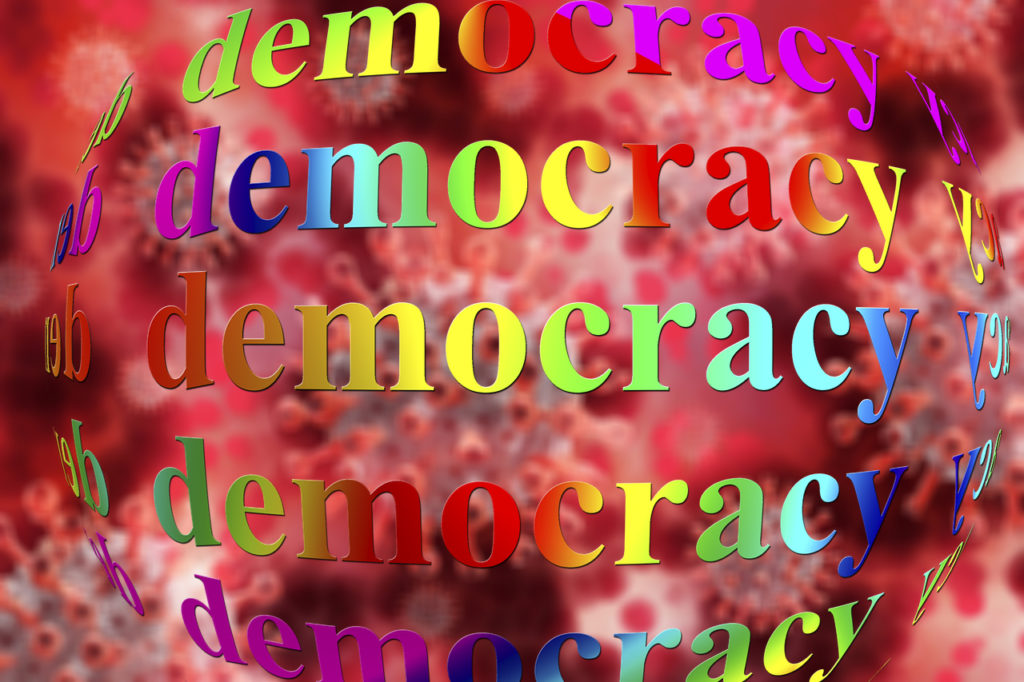Photo courtesy of LAOMS
Today is the UN International Day of Democracy where this year’s theme is COVID-19: A Spotlight on Democracy.
The pandemic is not the great equalizer that many claims it to be. In fact, COVID-19 has exacerbated social, economic and class divisions affecting the vulnerable communities the most. It has widened the gap between the privileged and the vulnerable, such as the ability to stay safe and healthy, or meeting the cost of life in the new normal or even reaching personal life goals. Many of the disproportionate impacts are directly related to political and social determinants of each population and is a scenario that plays out in each health crisis be it the Spanish influenza epidemic, H1N1 epidemic or the COVID-19 pandemic.
Globally, as the number of cases pass 29 million and the number of deaths pass 924,000, there is a growing consensus around the world that political determinants such as human rights and democratic values should be prioritized in the agenda of global health. Disregarding the importance of political determinants such as human rights and democratic values brings lasting harmful results to us all. Alarming examples of how political determinants impact our health and well-being can be seen in the United States of America, where lack of a coordinated Federal response and interfering with independent institutions have crippled the COVID-19 response, in Brazil where a president in denial has put his country’s people at risk, in India where early denial, suppression of reporting on COVID-19 have significantly increased case numbers and deaths. India currently has the second highest case count and the third highest number of deaths in the world.
Additionally, although COVID-19 is currently in the spotlight, it is important to remember that health is not just being free from COVID-19. Health is “a state of complete physical, mental and social well-being and not merely the absence of disease or infirmity.” Hence, all social and political determinants are equally important to the well-being of the public during this pandemic and beyond. Currently, Sri Lanka is gearing up to make major changes to its constitutional make up, which will have a significant impact on all policies including health policies.
Sri Lanka with its early containment policies and its strong dedicated public health system has managed to keep COVID-19 at bay. However, stigma, absence of equal rights for minorities and using the health emergency to arrest targets remain low points on an otherwise commendable pandemic response effort by the government. As with other countries many of the negative impacts were borne by the less privileged and the marginalized.
Politically, Sri Lanka is now at a turning point where the 20th Amendment proposed by the newly elected government aims to bring sweeping changes strengthening the executive presidency. Additionally, the proposed amendment will weaken institutions and give way to less accountability. In short, the 20th amendment will significantly weaken the democratic elements of the governing system in Sri Lanka and influence all political determinants of health.
The proposed 20th Amendment, will significantly impact our pandemic response policies, health policies and many other policies relevant to health from implementation and decision-making perspectives. Lack of regard for minority rights remains a point of concern within the larger policy infrastructure as well as the pandemic response in Sri Lanka. The structural power shift suggested in the proposed 20th Amendment will further decrease accountability on addressing claims of rights violations, especially in emergencies. Additionally, changes proposed in the 20thAmendment will have long term impacts on social well-being and mental health for vulnerable populations.
Finally, it is vital that we recognize constitutional changes that significantly empower the executive presidency have long term implications beyond the term of the current president. Even if President Gotabaya Rajapaksa is the most valuable player of all presidents in your book, having an unfairly strengthened presidency can potentially be very harmful under a future president whose decisions may not be grounded in science such as Donald Trump or a president who maintains an attitude of denial such as Jair Bolsonaro.
If there is one lesson we take away from the COVID-19 pandemic let it be how social and political determinants are directly related to health – including the impending constitutional changes in Sri Lanka. Hence, it is perhaps our responsibility to ensure human rights and democratic values are at the center of our constitution.
The author is formerly a Policy Associate at the Center for Policy Impact at the Duke Global Health Institute and is currently Ph.D. candidate on global health policy at McGill University.
